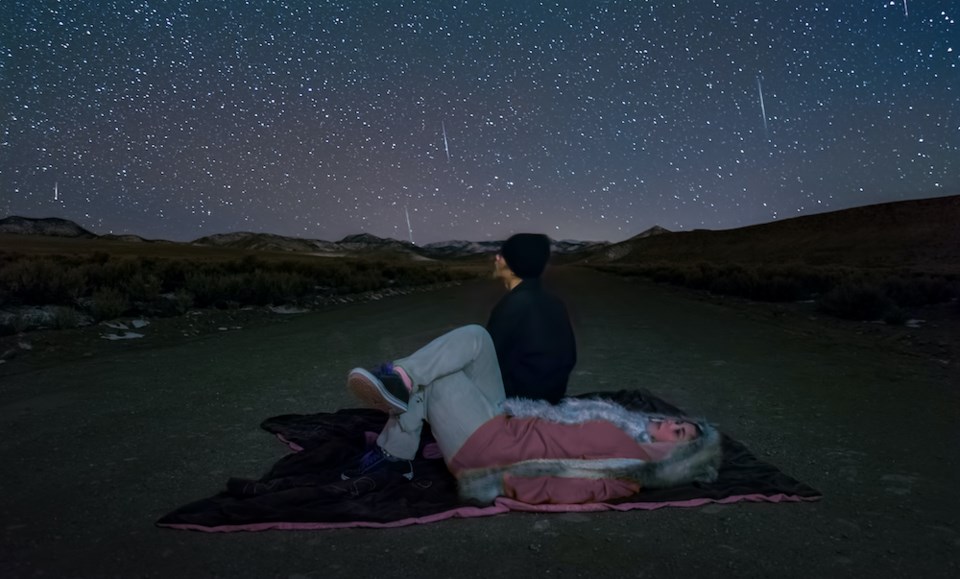The best meteor shower of the year will peak in Metro Vancouver in mid-August.
The Perseid meteor shower produces numerous shooting stars nightly from its onset, gearing up to dozens hourly leading up to its awe-inspiring climax. Locals can expect up to 50 to 75 shooting stars per hour during the shower's peak, according to the American Meteorological Society.
The shower kicked off on July 17 and runs until Aug. 23, although it will peak overnight on Aug. 12.
Sadly, the full Sturgeon Moon is slated to occur on Aug. 9, which may dim the perspective of the grand finale. The moon will be at its fullest in Metro Vancouver at 12:54 a.m., according to timeanddate.com.
The shower is also famous for its "fireballs," which are "larger explosions of light and colour that can persist longer than an average meteor streak," according to NASA. They are also significantly brighter than other meteors.
Perseid meteors appear to fall from the constellation Perseus
The shower has been active since last week, and some of its meteors will be visible until late August. However, they will gradually ease up heading into September.
According to the Canadian Space Agency (CSA), the Perseids originate from Comet 109P/Swift-Tuttle, which leaves a trail of dust and gravel as it orbits the sun. Earth crosses the comet's orbital path and trail of debris each summer, resulting in the annual meteor shower. The debris transforms into "shooting stars" as it disintegrates in Earth's atmosphere.
Comet 109P/Swift-Tuttle makes a full orbit around the sun once every 133 years.
The CSA says the Perseids originate in the constellation Perseus because they appear to fall from it. Greek astronomer Ptolemy catalogued the constellation and named it after the Greek mythological hero Perseus (see slide three).
Perseus is at its highest vantage point in the sky right before dawn, which is the best time to see numerous shooting stars.
Watching the Perseid meteor shower in Vancouver
To fully enjoy the spectacle, here are a few tips for meteor hunting:
- If possible, head away from city lights, which make it hard to see fainter meteors. To increase your chances of seeing shooting stars, set out in search of dark skies in the countryside.
- If you need to use a flashlight, place a red filter over the bulb (a red balloon will do in a bind). White light is very blinding and may affect your night vision.
- Dress warmly. Even though the Perseids occur in the summertime, it is still a good idea to bring warm clothes. August nights can be very chilly.
- Sit back and relax on a reclining chair or lie down on a blanket. Not only is it much more comfortable to observe the stars lying down, but you'll also see more that way.
- Pack a thermos of hot chocolate or coffee—it will come in handy if you start to drift off or get a little chilly.
- Be patient. It might take a while before you see your first shooting star. Don't be quick to give up... It's worth the wait.
Stay up-to-date with hyperlocal forecasts across 50 neighbourhoods in the Lower Mainland with V.I.A.'s Weatherhood.



